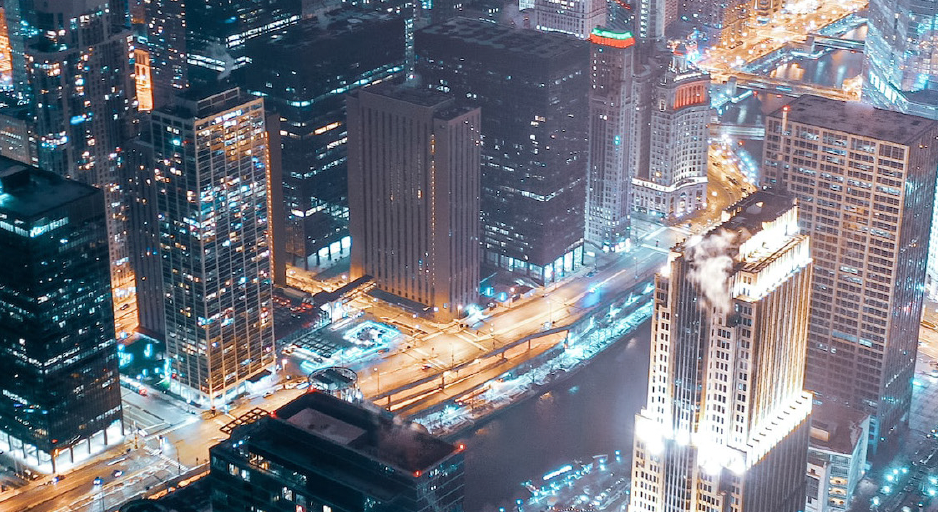AI Tech: A game-changer for enhanced influencer marketing campaign results.

Artificial Intelligence (AI) tools have been embraced by an array of Tech industries, with the world of Influencer Marketing being no stranger to applying AI for better campaign performance. Among the many reasons to use AI tools, strategically developed AI-led campaigns can help businesses gain traction from their most desired audiences, not to mention, AI holds the power to generate a long-lasting impact, resulting in better ROI and customer retention.
GOOD-TO-KNOW BEFORE GETTING STARTED WITH AI
With the industry boom in influencer marketing, it’s become increasingly difficult for even veteran marketers to keep up with industry trends and to discover a top-performing influencer between the masses. Although it may seem like a valid reason to implement AI to ease the job, marketers continue to have their share of reservations and difficulties with AI.
At present, the influencer marketing industry holds enormous potential for combining creative human talent with AI to produce results-driven marketing campaigns and, regarding the return on investment, it looks like a lucrative investment. However, in reality, AI is just a smarter technology to improve campaign results, not a silver bullet.
There exists many ethical concerns about using AI in marketing as these automated tools rely on an abundance of personal data for the tool to keep learning and improve accuracy of personalised and tailored marketing suggestions. Nonetheless, when data handling is treated with transparency, AI in marketing has changed the game for valuable lead generation.
USES OF AI TECHNOLOGY IN INFLUENCER MARKETING
The online playground has become a very competitive space for influencers to secure brand partnerships. With amplified competition, many influencers resort to black-hat tactics like buying followers to bump-up their follower count and engagement ratings. This in a bid to attract clients and partnerships. These influencer frauds are very costly to brands, causing damages of 1.3 billion USD. AI has been a game-changer to ensure brands are partnering with authentic influencers.
Identifying Influencers with Appropriate Target Audience: A popular issue that AI can take care of is to determine the influencer’s follower profile and confirm it matches the brand’s intended audience. With appropriate AI tech-tools, influencer accounts go through an extensive, multi-layered selection process that uses filters such as age, gender, language, location, interests, engagement, and advertising of competitive brands. This helps marketers to narrow down the focus on key audiences. For example, HypeFactory, for instance, uses a multi-layered selection process that includes 38 filters to identify the best influencers for a brand’s campaign.
Fraud Detection: As AI matures and becomes more sophisticated, it becomes incredibly difficult for influencers to be dishonest about the quality and ROI potential of their channels and audiences. AI algorithms can detect fraudulent influencer behaviour, like buying fake followers. This ensures that brands partner with a genuine influencer and engages a lucrative audience. Essentially, Ai prevents any undesirable campaign outcomes that could work against the brand’s reputation.
3 TIPS FOR BETTER INFLUENCER MARKETING PERFORMANCE
Continuous testing and learning, scaling up best-performing ideas, co-creating content with creators and integrating it into creative and product, along with experimenting with new social media platforms, are critical elements that need to be implemented for better marketing performances. With or without the presence of AI tools.
1. Focus on the brand’s niche: Keep influencers from the brand’s specific market vertical in mind, but don’t forget about the brand’s other interests in neighbouring niches. Examine what these interests might be, scrutinise and gauge influencers from those areas.
2. Tailor brand messaging: Make ads stand out from the rest by personalising it to the brand, and take note of current trends, for example, many people are drawn to ads with virtual influencers.
To make campaigns even more captivating, consider using additional engaging mechanics such as AR-masks.
3. Build long-term relationships with high-performing influencers: Spend more time crafting quality relationships, rather than constantly pursuing new ones. Save time by automating the process of finding new influencers. Also allocate enough time to develop creative strategies that will capture the user’s attention. Additionally, building trust with an influencer’s audience takes time and can’t be accomplished with just one campaign.
HARNESSING THE POWER OF AI-GENERATED MARKETING CONTENT
With AI-generated content becoming the latest digital trend, particularly in the context of virtual influencers and the growth of the metaverse, AI can be used to generate virtual influencers, create copyright-free images for influencer marketing campaigns and verify the uniqueness of a brand’s creative ideas. This can help increase the effectiveness of campaigns, make brands stand out from competitors, and prevent copyright infringement. Note that the success of virtual influencers still rely on content marketing teams who know how to use AI tools effectively. Brands cannot place all their faith in AI-generated content to achieve top performance without people operating behind the scenes.
CONCLUSION
The use of AI technology is undeniably a breakthrough for influencer marketing. In essence, the use of AI in influencer marketing can help brands to be more strategic and efficient in their influencer marketing efforts, ultimately driving better business results. Brands are able to take advantage of AI tools by optimising campaigns more effectively, following KPI’s better, and getting a greater insight into who they’re targeting. AI technology is expected to play a crucial role in influencer marketing as the market continues to grow and evolve.
